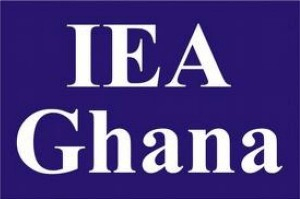Auditor-General’s reports are predictable – IEA
 Dr Michael Ofori-Mensah, Senior Research Fellow, has noted that the Auditor-General’s reports are both predictable and gloomy, adding that year-on-year, identical cases of misappropriation of public funds are documented, often within the same public institutions.
Dr Michael Ofori-Mensah, Senior Research Fellow, has noted that the Auditor-General’s reports are both predictable and gloomy, adding that year-on-year, identical cases of misappropriation of public funds are documented, often within the same public institutions.
Dr Ofori-Mensah, who is with Institute of Economic Affairs (IEA), said: “In some sections of the public sector, a culture of impunity to embezzle has taken grip. It will be apt to describe public financial management as in a state of permanent crisis. The evidence from audit reports confirms that perennial issues of financial irregularities are a substantial drain on public finances and paints a gloomy picture for our country’s long term economic development.”
The Senior Research Fellow, who made the observation in a paper titled: “Tackling Ghana’s Permanent Crises Requires Collective Action, “which was copied to Ghana News Agency in Accra said in spite of the inaction to address the permanent crisis, policy makers have never been short of rhetoric.
“Indeed, over the past weeks, there’s been a renewed focus on audit reports with the President and Minister of Finance separately restating government’s commitment to prosecute those identified in audit reports. The Auditor-General has also been in the firing line with some civic groups demanding that he initiates the prosecution of those identified in the reports over the last 11 years.
“It is important to highlight that the Auditor-General’s enforcement powers, as stated in Article 187 (7) (b) of the Constitution, grants the office power to ‘surcharge’ – effectively the authority to disallow any expense and charge individuals ‘responsible for incurring or authorising [that] expenditure’. The power of the Auditor-General is thus limited as the implementation of remedial measures falls on a range of institutions.”
Dr Ofori- Mensah said Ghana has elaborate legislation to ensure sound public financial management, adding the recurrent financial irregularities are, partly, the result of a failure to implement laws, weak public institutions and lax internal controls, hence the current focus on prosecution, whilst critical to accountability, is not enough to stem the scale of irregularities.
He said effective institutional checks and balances to prevent abuse of public resources, implementing the laws on the statute books and ensuring that procedures and processes are followed are crucial.
“This has not been a focal point of the recent debate. Indeed, until the fundamental issue of institutional weaknesses are addressed, the financial irregularities in the public sector will persist. Of the most urgent actions required, four stand out,” he said.
Dr Ofori- Mensah said consideration should be given to the institution of punitive measures to enforce section 30 of the Audit Service Act, 2000 (Act 584).
Under the section, Audit Report Implementation Committees (ARICs) – the intra-departmental units in public offices – are charged with enforcing the Auditor-General’s recommendations. However, they are non-existent in a significant number of public institutions.
Consequently, the recommendations from external and internal audits to address institutional lapses are not implemented.
Dr Ofori-Mensah said addressing these failings should be a priority, explaining that measures such as withholding allocations meant for public offices, which have not established ARICs, or failed to implement audit recommendations, should be considered.
He said the financial and technical capacity of Parliament needs to be strengthened, since the 1992 Constitution requires audit reports to be presented to Parliament for scrutiny.
He said the House is also empowered to recommend necessary corrective action, however recurrence of identical financial malpractices, indicates that Parliament’s response has been ineffective.
On the other hand, the Public Accounts Committee (PAC) lacks adequate financial and logistical capacity and this impacts its work.
Dr Ofori-Mensah said while the diversity of talents on the PAC is valuable, building the technical capacity of its members has to be taken up a priority.
“In fact, a Parliamentary Budget Office (PBO) could provide relevant technical expertise to support the oversight work of the House; its establishment needs to be given urgent consideration.”
He said lack of adequate resources partly explains the late submission of audit reports to Parliament, which significantly affects downstream accountability.
He said Government needs to go beyond paying lip service to reform and demonstrate political will by resourcing the Audit Service to carry out its mandate.
Dr Ofori-Mensah said effective implementation of provisions for the financial independence of the Audit Service is essential to strengthen its autonomy, limit the potential of political manipulation in the allocation of funds and improve the timely submission of audit reports.
He said: “It is crucial that measures are put in place to ensure the Financial Administrative Courts (FACs) – established under section 66 (1) of the Financial Administration Act, 2003 (Act 654) – are utilised. These courts have powers to make orders for the recovery of monies or assets owed to the state and complements the work of PAC and ARICs, as it has the responsibility to enforce Parliament’s recommendations on the Auditor-General’s reports.”
He said one of the deep-rooted governance problems Ghana faces is the lack of effective public financial management.
“Weak internal controls in public institutions accounts for a significant number of financial irregularities. Effective enforcement of remedial measures will require a collective approach with Parliament conducting enhanced oversight; the Judiciary taking steps to educate the public on the FAC, as well as ensuring cases which come before the courts are dealt with expeditiously; the Executive providing the Audit Service with adequate resources and also compelling ARICs to fulfil their statutory duties.
“The Auditor-General, too, will have to do more to fulfil his constitutional obligations. Whilst the demands on the public purse are inevitably great, an investment in institutions to stem financial irregularities will provide Ghanaians with significant dividends. It’s time for our political leaders to seize the initiative and take action to improve public financial management.”
Source: GNA
